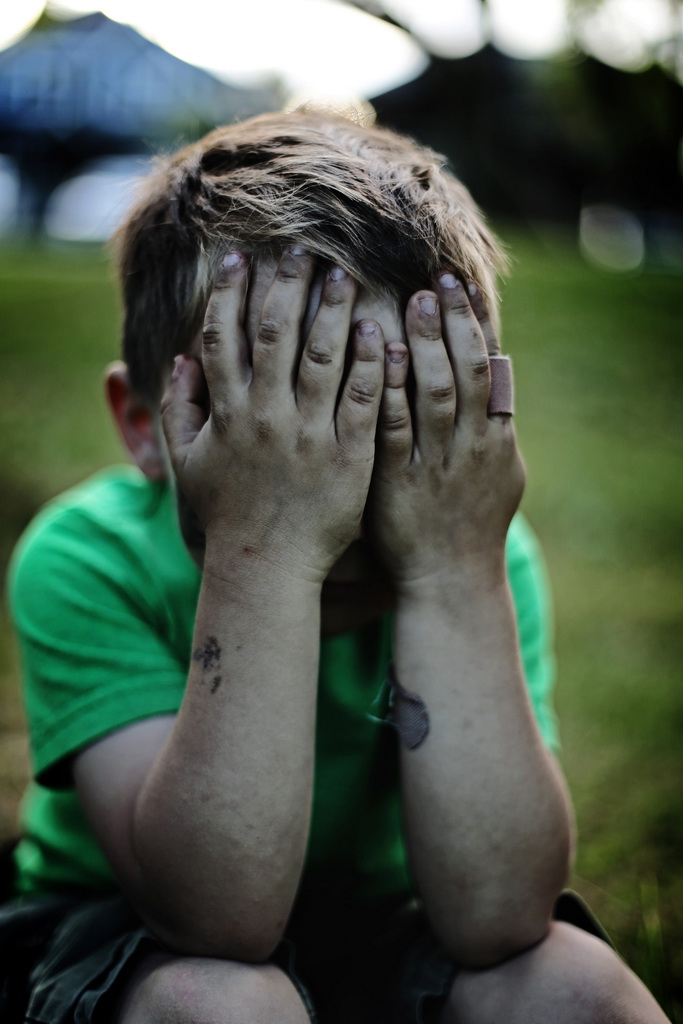 Author: Iva Eraković (Social Inclusion Blog)
Author: Iva Eraković (Social Inclusion Blog)
“I gave birth to you, so you will listen to me!”, “You can’t say no to me!”, “You have to listen to him – he’s older”, “As long as you live under my roof, it’s going to be as I say!”, “You don’t need to think, do as you’re told”. These are just some of the usual clichéd phrases we have heard, lived through, used, or suffered. They are most frequently said by parents convinced that unconditional obedience in children is positive and necessary, but they are also used by educators, teachers, while later in life they can be heard in similar variations from mentors, bosses, partners…
This starting point already makes it clear there is a relationship of authority – unconditional obedience, not subject to re-examination, something that can often become the famous “road to hell paved with good intentions”. This link is usually socially established and based on an autocratic system of thinking and action, and an authoritarian culture, where child education is in fact the initial link in the chain. That the intentions of authorities may not be “the best” is only realised, unfortunately, when we are faced with instances of emotional, physical or combined (ab)use of children. In such cases, abuse is hidden at two levels: both in the perfidious use of children’s obedience, and the severe abuse of the position of power of the person presenting themselves as an authority, when they are, in fact, a mere bully.
Authority vs. authoritativeness
During a time when parents are “stuck” between various modern and traditional models of child-raising, inundated with various theories and advice, they often turn to authoritative parenting, because “What was wrong with our parents?” Authoritarian parenting involves strictness and clearly set limits and rules that are not to be “discussed” – without taking into consideration the actual needs, desires or capabilities of the child.
In a family implementing the authoritarian approach, mistakes may not be repeated, rules are the alpha and the omega, and their violation is punished. In this specific line of control, when the child asks for an explanation of why it was punished, the parent will respond with “Because I say so”, since if children do not obey the rules, the parent may lose their authority and control. What kind of a message is this for a growing child? One clearly saying that one’s own opinions and feelings are irrelevant when faced with authorities – i.e. those assumed or implicitly understood to be such. However, the most important misunderstanding is in the fact that authoritarianism and authority are not and cannot be equals, just as an authoritarian society is not the same as a society nurturing healthy authorities.
Authoritarian, authoritative and permissive education
Diana Baumrind, a pioneer and one of the most renowned researchers in the field of parenting styles, defined three basic types of parent-child relationships: authoritarian, authoritative, and permissive. Unlike the authoritarian (rigid, strict) style, the authoritative (democratic, consistent) parenting style corresponds to a warm-limiting approach, characteristic of parents encouraging verbal communication and child initiative. Control is relatively high, but reasonably adjusted to the age of the child, setting clear demands and limits on behaviour. A permissive (overindulgent) style is shown by parents setting low demands with poor control, a high level of warmth and support, where the child’s every demand is fulfilled.
Some authors add the indifferent (neglecting) style of parenting to these three types of relationships. This approach involves complete lack of care of the child, the child is left to itself, since it lacks rules and warmth. There is emotional neglect of the child as a consequence of one or both parents often being away from home or preoccupied by something else – work, poverty, addiction, divorce, or illness.
Although obedience to parents makes it possible to guide the child towards developing self-control and certain positive character traits, what is often overlooked is that a child cannot and should not be forced into obedience. Sometimes obedience is used only for the child to eat a meal, finish their homework, clean their room, all of it part of acquiring necessary habits. However, when children are obedient out of pure habit, coercion or fear, this means they are performing their obligations mechanically and telling lies when they fail to do so, and this will also be carried into their adulthood.
All in all, if we constantly order the child around and punish it strictly for every mistake, in the end it will either rebel or break, in both cases distancing itself permanently from its parents. As an adult they will have high chances of becoming a constant rebel or unhappily subservient.
Obedience is not subservience
Children carefully observe adults, first their parents, then their teachers. They see how loyal and dedicated they are to things, whether they are persistent in their principles, what values they represent. They also easily learn if things are insincere, or of the model of behaviour differs from what they say out loud. Thus, being obedient does not mean to submit without a word, it is not a master-servant relationship. Obedience only exists if the person does a thing out of respect for the authority of the one asking or ordering them to do something. Rational authority is based on respect and acceptance of core values, never on fear or coercion. Everything else is purely submission, forming an undesirable social consensus, where the values are unclear, artificial and dishonest.>
Dangers of the glorification of a “firm hand”
The initial premise whereby a good child is only an obedient child hides a plethora of traps large and small. They will doubtless harm the achievement of the full potential of the child, the development of its creativity and critical thinking, and in time it will raise mediocrities, citizens easy to manipulate and control. There are also traps directly hazardous for the integrity, and even safety of the child, since they become available to various forms of manipulators and predators, which may unfortunately remain unnoticed until the child is in the position of a victim, when irreparable damage has already been done.
Paedophilia: the dark side of obedience
Although parents are most often afraid of attackers “from the bushes”, the terrible truth is that paedophiles also abuse the concept of absolute obedience, and most often hide in a person “of trust” in the child’s circle of acquaintances. It should be kept in mind that this is a premeditated plan of violence against the child, and may last for years before actual abuse starts. After sexual abuse, paedophiles continue to manipulate the child with various threats and forms of blackmail, while simultaneously offering the child help and support, making it even more vulnerable and isolated. The child feels betrayed, ashamed, guilty of “allowing” to be hurt by someone they trusted unconditionally. These feelings can last for years, or even decades, if the abuse remains hidden between the victim and perpetrator, with immense consequences for the emotional and sexual life of the adult person. However much it may seem impossible for parents/guardians to not notice something that deviant – practice shows that this does unfortunately happen, thus experts advise paying attention to any changes in the child’s behaviour and seeking expert assistance.
Studies conducted during the past decades have shown that authoritarian parenting often raises children that tend more towards anxiety and depression, with lower self-confidence compared to children of parents with different parenting styles. The same problems noticed at an early age are transmitted to adulthood. Children that have not had enough experience in negotiation become adolescents, and later adults, with their will broken, afraid of authority and with problems in standing up for themselves. “Well raised children” broken by authority become subservient, since they are only motivated by the desire to be model, “good” citizens. They will usually have no problems during their education, but when they grow up they often face various emotional and mental challenges, they are socially apathetic and non-opposing, in fact – socially excluded.
Where are the roots of glorifying patriarchal authoritarianism and strictness?
It would seem be that the return of some parents to a “firm hand” approach appears as a counter to the claim that today’s children are spoilt. This thesis is easily followed by the patriarchal pattern of traditionalist romanticisation of the past when “we knew how things stood”, the children “knew their place”, and parents could “teach them what’s right” without fear that social services and child rights defendants will be on their backs. In this fervour of subservience, a large number of parents accepts without reserve a “firm hand” even outside the family, to lead their children “on the right path”. However, although unimaginable for the majority of people, the line between a strict teacher and potential abuser is sometimes very thin. The responsibility of a parent not to raise a “perfect” victim – is immense.
Corporeal punishment forms a potential victim
A significant number of parents in Serbia believe corporeal punishment is not violence, since: “The fact that I beat them sometimes does not mean they will become a bully”. “However, if you send the message that violence is acceptable, since you yourself use it, the child will adopt that form of behaviour as its own model, since it knows no other. The other side of a potential outcome is to remain a victim in the future, as it is today. I.e. when they become adults, they retain the attachment model and “find another abuser” – believes pedagogue Jelena Holcer.
Interestingly, parents in Serbia objected en masse to the announced legal prohibition of spanking. This is more evidence that as a society we nurture deeply patriarchal and authoritarian methods of parenting.
For a child to be able to respect authority without fear, it must feel trust, it must feel recognised, experienced and accepted as it is. For the development of this kind of healthy relationship towards authority, the phase of opposition is also important. One of the most important duties of a parent is to teach the difference between cannot and will not at an early age, and to empower the child that NO – is a legitimate response. Only this will reduce the chances of their children becoming easy prey to predators or unconditionally subservient adults.
Harsh parenting feeds into a harsh social system
The links between authoritarian social systems and parenting models are interesting. German pulmologist Johanna Haarer wrote a book in 1934 titled “The German Mother and Her First Child”. The book that sold 1.2 million copies promoted a rigid, hash system of parenting where, for example, immediately after birth babies should be isolated from their mother for 24 hours:
“Do not lift your child out of bed, do not carry it around, do not rock it or keep it in your lap, do not even caress it. The child very quickly learns that it is enough to scream and thus call forth a compassionate soul and become the centre of attention. After a very short time it will demand such attention and believe such actions are the only correct way, and will not stop and demand that you repeatedly hold it in your arms, carry it, rock it. Thus you will have created a small, merciless bully”, wrote Haarer.
As the Nazi party took over Germany, these teachings became the training programme for mothers in the Third Reich, adopted during the next 10 years by at least 3 million women. A recent article in Scientific American reports on a study by the psychotherapist Hartmut Radebold, establishing that her work attracted two groups of women: those already connected to the Nazi party, and those themselves having lived through emotional trauma in their own childhood. The consequences of this parenting model were felt 80 years later, and a common thing among patients was a memory of the book “The German Mother and Her First Child”, on the bookshelf in their rooms.
——-
Iva Eraković
My name is Iva Eraković, I was born in Belgrade in 1973. I have graduated journalism and communicology at the Faculty of Political Sciences. I have spent a significant part of my professional life working in media outlets, as a journalist and editor. Since 2011, I have been the Executive Director of the Friends of Children of Serbia. I believe in social change through personal engagement in boundary pushing, movement and sharing, and I consider the investment in children and youth to be the essence of an equitable society. I enjoy writing and music. I am a mother of three daughters – Srna, Mila and Lana.
——-
Source: Social Inclusion Blog
Click here for more blogs authored by Iva Eraković.
If you’re interested in reading more blogs on the topic of social inclusion, click here.
 Government of the Republic of Serbia
Government of the Republic of Serbia


















 pdf [271 KB]
pdf [271 KB]
Leave a Comment